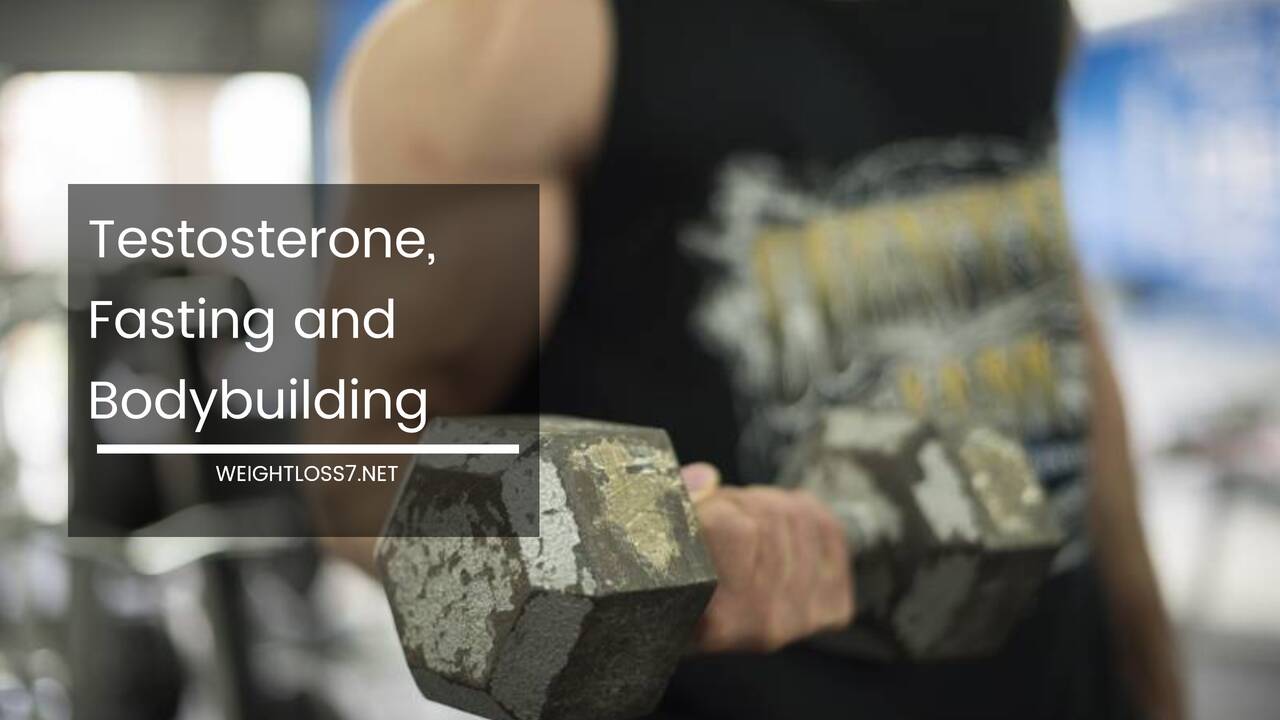Testosterone, Fasting and Bodybuilding

What is the relationship between intermittent fasting and testosterone? Additionally, does fasting play a negative role in bodybuilding?
Testosterone is the primary male hormone that works with male libido and muscle accumulation. Additionally, it has necessary roles all around the body that do not have to be listed at this time.
Intermittent fasting is a method of eating that alternates periods of eating with periods of not eating or fasting. Typical intermittent fasting programs mentioned here include EAT stop EAT and Leangains.
The relationship between testosterone and intermittent fasting is interesting because it is assumed that fasting and caloric restriction would lead to a significant negative effect on testosterone levels.
And that is important in the health and fitness realm because the amount of muscle one possesses holds a high rank within health conscious people.
It is well known that severe caloric restriction can result in the down regulation of many hormones, including testosterone and leptin. This is one of many reasons severe caloric restriction is not advertised in abundance here.
Intermittent fasting takes advantage of both related issues and negotiates to end up somewhere in the middle. It results in caloric restriction, in many cases, enough for weight loss, and at the same time, it has a very small to none effect on testosterone.
The following research on fasting and bodybuilding and their relative effects on testosterone should enlighten and clarify:
No negative effects from weeks of short term fasting on testosterone levels
The above research shows that intermittent fasting in 14-21 hour periods had no negative effect on testosterone levels.
Testosterone levels drop slightly after 56 hour fast
The above research showed something very interesting. It was recorded that testosterone levels did decrease in the 56 hour fast, but they dropped to still be within healthy adult levels.
This is very interesting because of the above explained current understanding of fasting. It is assumed that something like fasting would have a negative effect on testosterone levels.
Testosterone levels drop on 9th day of fast
The above research shows that testosterone levels didn’t take a huge dip while fasting until this ninth out of 10 day day fast.
The conclusion of these studies and many more is that intermittent fasting programs, when fasting in short periods of time, do not have a significant effect on testosterone levels.
It is only when the fasts were extended beyond “intermittent” into the days of fasts that testosterone levels dropped off.
Many people approach the idea of using intermittent fasting with doubts, but also with stories of other’s success with intermittent fasting.
Fasting and testosterone levels is an important topic because of testosterone’s importance in the health-conscious person’s mind and the controversy around the two because of the low caloric intake/low testosterone relationship.
Guest Post: This article was published as part of the Guest Post Series. Guest posts come from leading experts in weight loss, health, and fitness. The series tries to bring a diverse range of perspectives on the critical issues of our time. The views expressed in this article are solely that of the author and do not necessarily represent the views or opinions of WeightLoss7.Net.

















